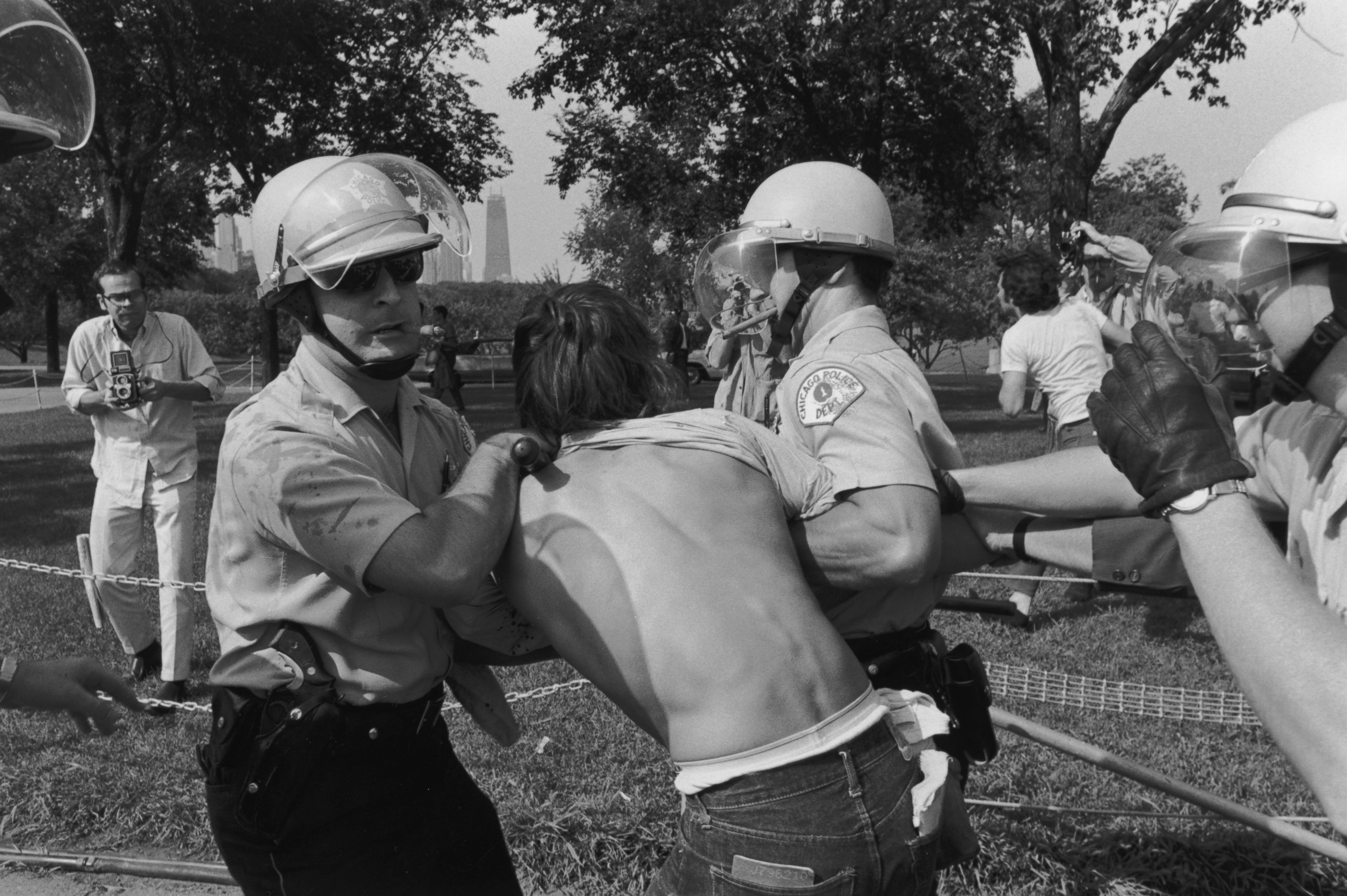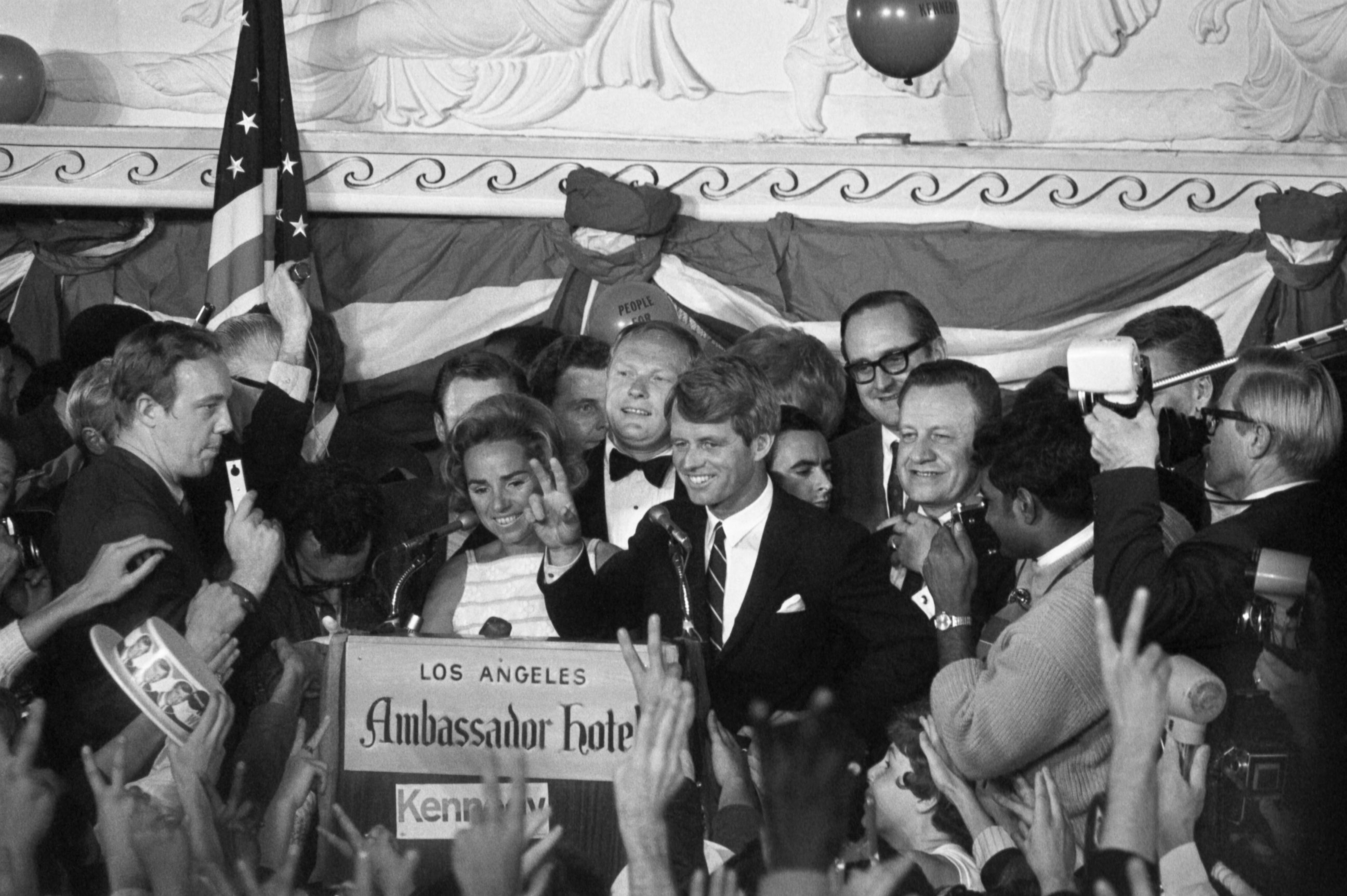The History of Violence on Presidential Campaign Trails
Donald Trump isn't the first candidate to witness violent outbursts at events.
— -- The violence surrounding protesters that has been seen at several Donald Trump rallies in recent days has raised concerns about potential dangers at campaign events and in the electoral process in general.
On Friday night, Trump's campaign called off the rally out amid what they said were safety concerns. The next day, footage shows police in St. Louis, Missouri, using pepper spray to control protesters outside one of his events.
In spite of Trump’s assertions today that his events are “love-fests” without violence, the frequency of protesters being detained, removed or arrested appears to be increasing and the level of physical confrontations between protesters and supporters appears to be escalating as well.
Not the First Time Political Events Ended in Clashes
Though much of the conversation about political violence focuses on the recent past, Erica Chenoweth, an international relations professor at the University of Denver, points out that clashes were much more common at the turn of the century.
"It was pretty routine in American politics up until the Post-War period,” Chenoweth told ABC News. “The major clashes were between industrial and financial sector supporters and labor union supporter types.”
Clashes became quite frequent during the 1896 election, when Republican William McKinley was running against Democratic candidate William Jennings Bryan. The election came after a period of economic depression that some say ran from 1876 until 1896, and is sometimes referred to as the Long Depression.
"President McKinley’s election, which was right after the [Long] Depression, there were lots of clashes with populists that supported the farm workers and the farming industry and people that supported more financial sector and trade,” she said.

What Happened in 1968
Friday night wasn't the first time that a political event in Chicago ended in violence. The city hosted the Democratic National Convention in 1968, where riots broke out and police had widely reported physical confrontations with protesters both inside and outside the convention hall.
One of those who experience the violence firsthand was then-CBS reporter Dan Rather, who later recalled being pushed to the ground.
The 1968 campaign is widely regarded as the most violent of recent presidential campaigns, as it came during a volatile time for the country as a whole. In April of that year, civil rights leader Martin Luther King Jr. was killed in Memphis, and two months later, presidential candidate and Sen. Robert Kennedy Jr. was assassinated after a victory speech following his primary win in California.

The violence wasn’t limited to Democrats, however -- it also marked an event for controversial third party candidate George Wallace.
A Chicago Tribune article from just days before the 1968 election reports that there were a "flurry of fist fights that broke out.... as Wallace supporters and some of several thousand hecklers clashed."
Wallace "clipped a speech short tonight as wild, chair-swinging violence erupted at a rally" in Detroit, the article states.
Mass Arrests at 2004 Republican Convention
In 2004, when the Republicans held their convention in New York City, there were heightened security concerns given the nature of hosting such a large-scale event in New York three years after the Sept. 11 attacks.
The New York Civil Liberties Union noted in a 2005 review of the convention that there had been about 1,500 arrests, which led to criminal proceedings over the next year.
What’s Happening Now
Beyond the clashes that have been caught on camera at Trump campaign events, some point to Trump’s rhetoric as confusing and concerning.
At a Las Vegas rally back in Feb. 22, Trump said: "You know what I hate? There's a guy -- totally disruptive, throwing punches. We're not allowed to punch back anymore. I love the old days. You know what they used to do guys like that in a place like this? They would be carried out in a stretcher, folks. True."
Trump has also said on occasions that he does not condone violence.
Georgetown University associate professor Hans Noel told ABC News that nowadays, police and protesters have something of an understanding that protesters may be arrested, but they will not be 'roughed up' for the most part.
"I think most people would view that as progress, that we don’t knock heads," Noel said. "We've sort of evolved as a society."
"It's notable that at least some of what’s happening now, it’s not police knocking the heads of protesters but other supporters," he said.
What it Means in the Long-term
Chenoweth noted that political violence is “pretty rare” in the United States but “actually pretty common in lots of other emerging democracies,” citing Kenya and India as two examples.
On the macro level, she said such violence happens when countries don’t have a longstanding trust in their civil institutions, such as elections and judicial systems.
When hearing about the violence during this election, Chenoweth pointed out that it may be a sign of a larger problem.
“I became very concerned when I watched it mostly because I became concerned that people in the United States no longer see institutions as a way to resolve our conflicts peacefully,” she said.




